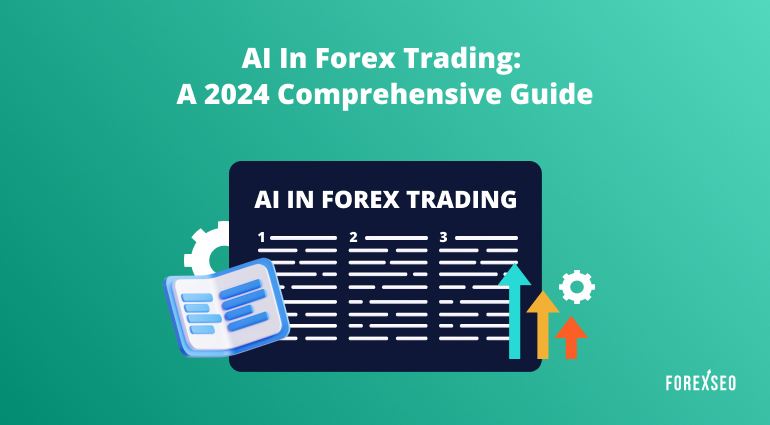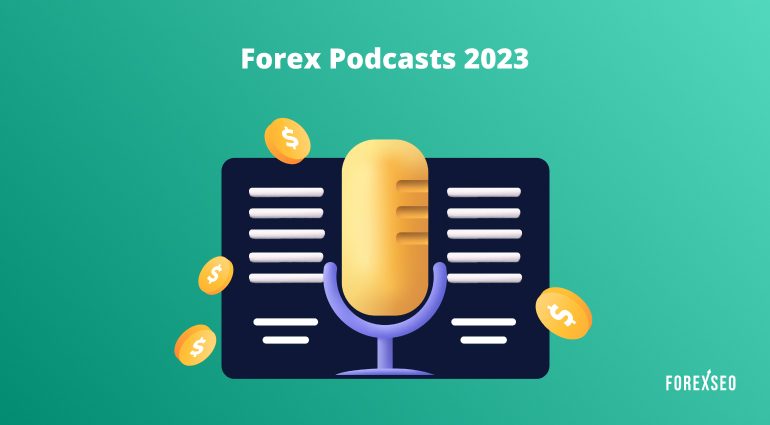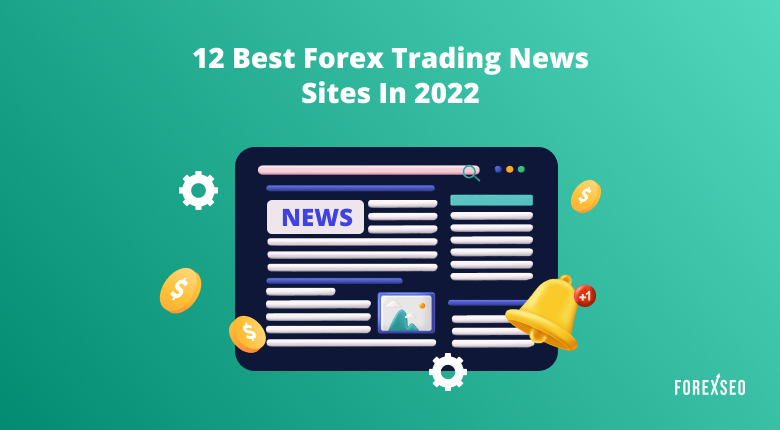Forex Keywords: Best Keywords to Use in SEO or PPC Campaigns

In this article, we’ll talk about how to perform keyword research for this specific market. Additionally, we’ll share examples that you can start using in your SEO and PPC campaigns.
Let’s get started!
Why Do You Need to Use SEO Keywords?

SEO keywords are words or phrases that are used when creating content for your website, blog posts, and other online materials. They should be carefully chosen to attract potential customers who are likely to use them in a search engine query.
Search engines evaluate websites according to the relevance of the content on their pages. By including targeted keywords on your website, you can help to ensure that potential customers find your content when they search for it. As a result, the right keys will provide more targeted search results and attract a highly targeted audience, making them more likely to convert into sales or get leads.
Okay, so what makes a good Forex keyword? It should be relevant to your business and also reflect what people are likely to type into a search engine when looking for forex-related information or services. For example, if you are a forex broker, the key phrase you can use might be “How to start trading on a forex trading platform.”
Additionally, the keywords should have enough search volume to justify the effort. It should not be too competitive for PPC campaigns or too difficult to rank for with SEO content.
It will take some effort to find the best solutions for your content. But the effort will be worth it given that finding the right keywords can have more implications:
Enhancing the site’s semantic core
What is the semantic core of a website? It is like a library of terms and phrases that are related to what you do as a forex platform. You build your semantic library gradually as you create content. In SEO and PPC campaigns, having the right keywords in your semantic core can help you boost visibility, increase organic traffic, and ultimately achieve better Forex ranking results.
Help search engines understand and categorize your site
Properly selected keywords help search engines categorize the site, which in turn enables it to be found quickly and more accurately by users. When you start creating a Forex keywords list, begin by researching the most popular terms used by other competitors in your niche. This will give you an idea of what kind of words are being used when referring to services, features, activities, or products.
Boost the performance of Paid campaigns and reduce wastage
Broad keywords are bad for paid and SEO campaigns. They result in resource waste. Narrowing down the list to the most relevant terms can result in better performance, reduced wastage, and a higher ROI.
Building your authority by providing answers to emerging questions
For SEO campaigns to be successful, they need to answer new questions from forex traders and address industry trends. This can make your site a leader in its niche and earn the trust of search engines, people in the industry, and regular users.
Helping your content to rank for a longer time
The best SEO keywords for Forex can not only help your content rank higher on search engine results pages but also remain there for a longer time. It will be essential to select Forex keywords that will result in truly evergreen content. An SEO tip that you can remember is that even high-quality content needs periodic updates to ensure that it retains its top positions.
Ranking for multiple keywords on the same page
Using LSI words and synonyms can optimize the performance of a single piece of content. This can allow it to appear for multiple search phrases and on SERP features such as a featured snippet or “People also ask” boxes.
Improving the site’s structure and internal navigation
Appropriate terminology can improve your site’s navigation and structure. You might reasonably wonder how. For instance, you can make titles descriptive and helpful by including keywords that accurately reflect what the content is about and signify the user’s intent, so people know what they’re clicking on.
How to Do Keyword Research for Forex Websites?
Website owners usually do keyword research by picking a main key to use in their SEO campaigns and then building on it without giving much thought to its difficulty, volume, or purpose.
Another pitfall may be focusing on a primary word and ignoring related variations. For instance, you may discover a keyword such as “Fx market analysis” and decide to write a 1,000-word article focusing on this primary word.
Here are four recommendations that you can focus on when choosing keywords that will increase the chances of attracting more traffic to your website.
Finding related keywords
When it comes to the highly competitive foreign exchange market, don’t merely focus on writing content around the primary key. This method might not be the best way to make a single piece of content more relevant.
Instead, the best way to do the research as you start a forex business is to focus on finding Forex related keywords that a potential customer would use when searching for trading services. This means using language that is specific to the industry and that reflects the language used by traders when writing the article.
Search intent
Search intent is what people are looking for when they type in Forex terms into a search engine. It’s what they are looking to accomplish or learn. For example, if someone types in “best forex trading strategies,” they are likely looking for advice on how to make money from forex trading.
If someone searches for “how does forex work,” they may be interested in learning about the basics.
Search intent can be categorized as:
- Informational: Users are searching to find information related to a topic. For example, someone may search for “What is forex trading?” in order to learn more about the subject.
- Navigational: The person is looking to go directly to a specific website or resource. For example, typing the platform’s name into a search engine will often direct the user to a specific website or product page.
- Transactional: The user is looking to make a purchase or undertake an action. With Forex keywords, this could include popular queries like “make a forex trade” or “how to open a forex trading account.”
- Local: A local search intent occurs when a user is looking for something in their vicinity. For example, someone may search for “forex trading courses near me” to find relevant options in their city or town.
Before you use forex-related keywords in your SEO or PPC campaigns, you should know the different types of search intent they show.
Search Volume
Search volume is the number of searches related to a specific word or phrase that take place over a certain period. The higher the search volume, the more popular the keyword or phrase. This is an important factor to consider when selecting the best keys for any SEO or PPC campaign.
It’s important to note that search volumes don’t always reflect the number of clicks a keyword will generate. Click-through rates can be affected by how much competition there is for a certain term and by other things like title and meta description tags.
While forex trading terms with good volume tend to have increased difficulty, you can still find high-volume keywords with low difficulty. These words are not too obvious, so it’s important to perform in-depth research and spend more time looking for them. You’ll also need to use the right tool. Keep in mind that not all SEO tools accurately track the search volume of keywords.
That said, don’t merely focus on search volume. Make sure the keys are relevant to your business and target audience, as well as any other criteria you deem important. You should also have a good understanding of your target audience and their search habits. This will help ensure that your SEO or PPC campaign is successful in driving the desired results.
Keyword difficulty
It is an indicator of how hard it is to rank in the top positions for a given keyword. This indicator can be divided into two main types:
- Organic keyword difficulty: It measures the competitiveness of a given keyword in terms of SEO. This can be determined by looking at the number of competing pages, their domain authority (number of backlinks), and other metrics.
- Paid keyword difficulty: It represents the competitiveness of a given keyword in terms of PPC campaigns. This can be determined by looking at the word’s cost-per-click (CPC) and the total number of clicks and impressions.
When it comes to shortlisting keywords for your Forex SEO campaigns, keyword difficulty can help you determine whether a given key is worth targeting and how much effort it will take to rank for it. Additionally, if you are running a PPC campaign, keyword difficulty will be the main factor in determining the cost-per-click for your ads and optimizing your budget.
That said, ranking for options with high difficulty is not entirely out of your grasp. Essentially, most tools measure keyword difficulty by the number of domains linking back to pages with the keywords. Over time, as you build high-quality content and gain backlinks, your Google TrustRank will increase, and you’ll find that you’re ranking for really difficult keywords.
Best Keywords for Forex in 2023
So, what factors contribute to the best Forex keywords? Such keys fall into different categories. You need to make a selection of categories to focus on to start refining your SEO strategy. Generally, the best keywords for Forex in 2023 should fall into the following categories:
- Brand name keywords: These contain your brand name or the names of your services or products, such as “{Your company name}” or “{Your company name}” + “Forex trading.”
- LSI Keywords: These are keys related to the niche that improve the context and relevance of your content. For example, when writing about day trading, some LSI terms can include “day trading rules” or “day trading strategies.”
- Long-term evergreen keywords: They never cease to be relevant, and they should always appear in your content strategy. “Forex strategies” is a good example. Customer-defining keywords: These are terms related to your target customer or audience segment. For instance, a phrase such as “trading forex for beginners” is targeted at new customers.
Geo-targeted keywords: This category includes phrases like “Forex trading in London” that refer to a specific place on Earth.
Informational keywords: These words can relate to the educational aspect of Forex, such as “Forex education” or “Forex tutorial.” In reality, informational keywords are more important than they seem because people like gaining new information.
When you’re looking to optimize your Forex PPC or SEO campaigns, understanding what are the most searched keywords can help you tap into popular topics.
We’ll now share a few examples of the best keywords for Forex trading:
| Keyword | Difficulty | Volume | Global volume | Traffic potential |
| forex trading | 86 | 68000 | 340000 | 84000 |
| what is forex trading | 82 | 7100 | 35000 | 29000 |
| forex trading for beginners | 65 | 4100 | 25000 | 29000 |
| trading forex | 86 | 2900 | 47000 | 29000 |
| forex trading app | 39 | 2100 | 16000 | 4600 |
| what is forex trading and how does it work | 80 | 1500 | 8200 | 17000 |
| forex trading platforms | 78 | 1500 | 8700 | 2400 |
| best forex trading platform | 66 | 1200 | 7500 | 21000 |
| is forex trading profitable | 26 | 1100 | 5200 | 4600 |
| forex trading hours | 48 | 900 | 3900 | 6500 |
| best forex trading app | 40 | 900 | 5800 | 4600 |
| forex trading strategies | 38 | 800 | 7200 | 900 |
| forex trading platform | 78 | 800 | 5500 | 82000 |
| robot trading forex | 36 | 700 | 6200 | 7200 |
| forex trading best broker | 62 | 700 | 700 | 21000 |
| copy trading forex | 39 | 700 | 3500 | 800 |
| forex copy trading | 40 | 700 | 4600 | 4100 |
| forex robot trading | 33 | 700 | 3900 | 6000 |
| best broker for trading forex | 58 | 700 | 1100 | 21000 |
| best broker forex trading | 58 | 700 | 1200 | 21000 |
| robot for trading forex | 36 | 700 | 1500 | 7200 |
| forex trading copier | 40 | 700 | 700 | 800 |
| copy forex trading | 39 | 700 | 3700 | 4000 |
| robot forex trading | 36 | 700 | 3700 | 7200 |
| forex trading with robot | 36 | 700 | 1200 | 7300 |
| trading robots forex | 37 | 700 | 2400 | 7100 |
| best brokers forex trading | 66 | 700 | 900 | 20000 |
| trading robot forex | 32 | 700 | 3900 | 5800 |
| is forex trading legit | 31 | 700 | 2000 | 1600 |
| forex trading robots | 31 | 700 | 2500 | 7200 |
| robots forex trading | 31 | 700 | 800 | 7200 |
| forex trading apps | 39 | 600 | 4300 | 4600 |
| automated trading forex | 35 | 600 | 2500 | 3100 |
| forex trading sessions | 42 | 600 | 2800 | 900 |
| forex trading automated | 39 | 600 | 1200 | 1600 |
| automated forex trading | 34 | 600 | 3000 | 1800 |
Сonclusion
When it comes to your Forex SEO and PPC campaigns, understanding the right keywords to use will be crucial in helping your campaigns succeed. You’ll need terms and expressions with the right difficulty and volume, as well as ones that match your customers’ intent.
We hope this article has provided you with the information needed to start your keyword research. But remember, it takes time, experience, and the right tool to not only find the right vocabulary but also build a good strategy.
That’s where a professional can help. A good keyword research specialist will be able to help you find the right keys to target based on your business and your goals. They’ll also be able to give you advice on how to use those words in your marketing efforts so that you can get the most out of them.
ForexSEO provides some of the best SEO services for fx brokers. If you’re looking for help finding forex trading keywords, be sure to reach out.






